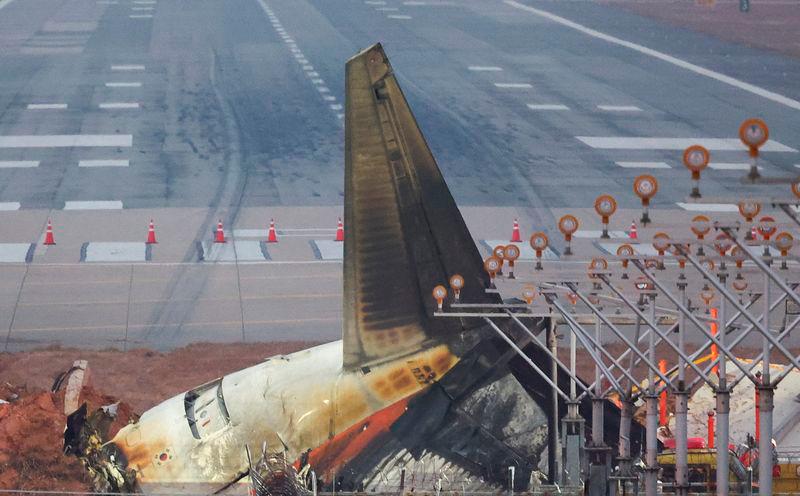SEOUL: The Jeju Air Co. aircraft involved in a deadly crash that claimed 179 lives was found to have operated 13 flights in 48 hours prior to the incident, Yonhap News Agency reported, citing industry sources on Monday, raising concerns over excessive usage in a short period of time.
The Boeing B737-800, which is believed to have experienced a landing gear malfunction during its descent at Muan International Airport on Sunday, was found to have travelled between Muan, Jeju Island and Incheon, west of Seoul, in the prior 48-hour time window.
It was also found to have traveled to international destinations, including Beijing, Bangkok, Kota Kinabalu, Nagasaki and Taipei.
READ MORE:
South Korea orders air safety probe after worst crash in country kills 179
141 out of 179 killed in Jeju Air plane crash identified
The aircraft served as a charter flight for group tours mostly organised by a Gwangju-based travel agency, which offered a 5-day package trip to Bangkok for the Christmas season.
Charter flights are specially scheduled based on demand and are typically filled exclusively with passengers recruited by travel agencies.
Industry observers have raised concerns about whether Jeju Air may have overextended itself by scheduling excessive charter flights during the year-end peak season.
Regional airports in South Korea are heavily reliant on charter flights operated by low-cost carriers such as Jeju Air.
“In the case of regional airports, there are very few regular flight routes, so they often rely on charter operations. Since most airlines operating at regional airports are low-cost carriers, the majority of charter flights are run by these airlines,“ Yonhap quoting a travel industry official said.
Jeju Air has been identified as having one of the highest average monthly aircraft utilisation rates among domestic airlines.
According to the company’s data, the average monthly flight time per Jeju Air aircraft was recorded at 418 hours in the July-September period, the longest among the six domestic low-cost carriers.
Other competitors reported lower figures, with Jin Air recording 371 hours and T’way Air 386 hours per aircraft over the same period.
Full-service carriers had comparatively shorter average monthly flight times, with Korean Air at 355 hours and Asiana Airlines at 335 hours per aircraft.
ALSO READ:
S. Korea to inspect all boeing 737-800 planes following passenger jet crash
South Korea’s passenger jet returns following take-off over landing gear issue









